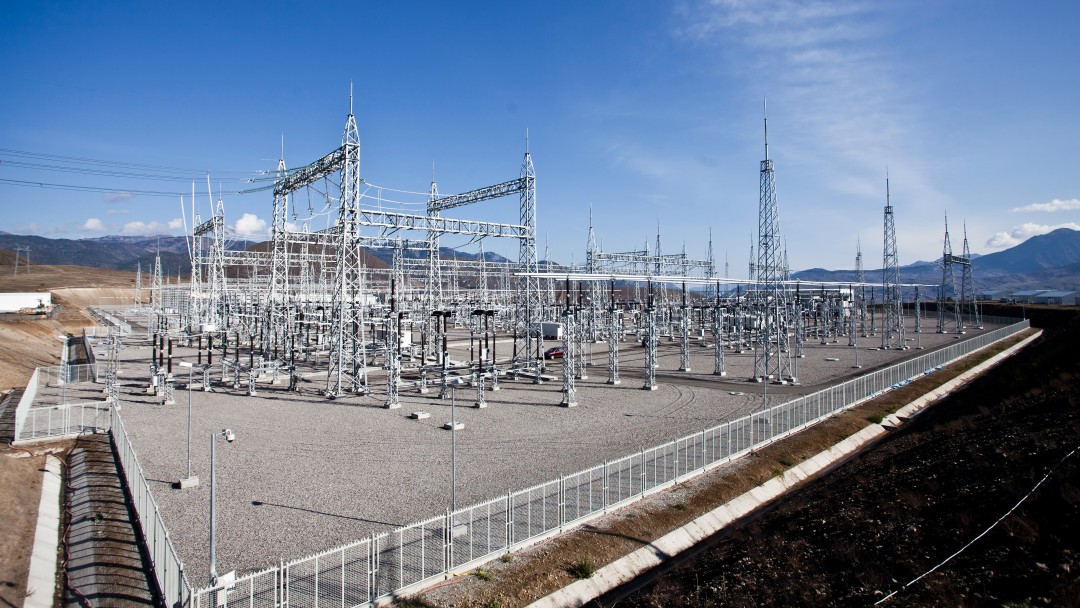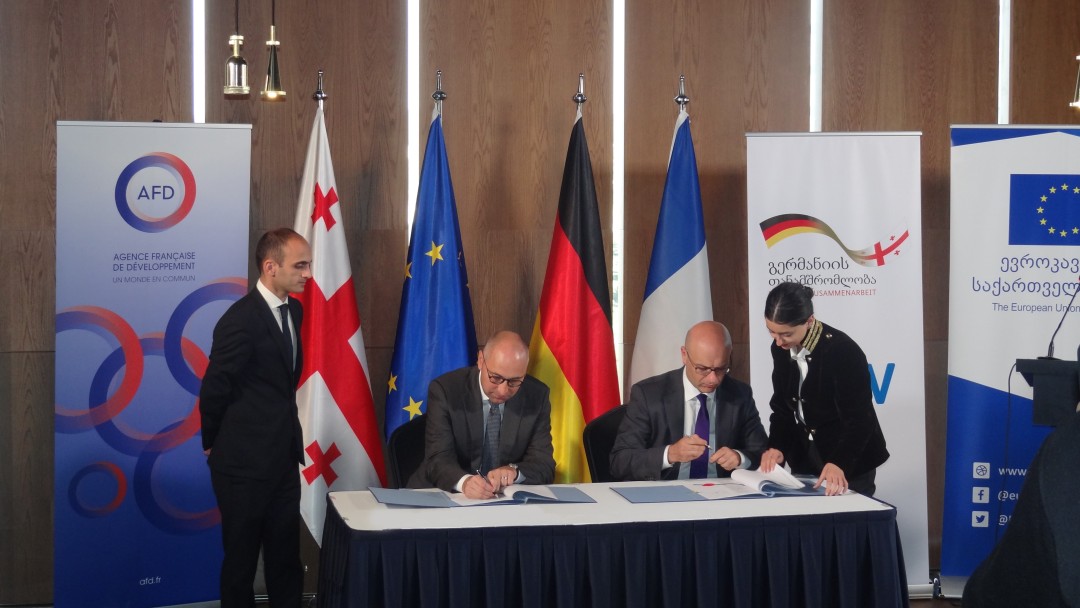News from 2021-07-21 / KfW Development Bank
Europe in perspective: Georgia on the fast track
KfW supports the country in the Caucasus in reforming its energy sector

The direction is clear: Georgia is heading for Europe. The country plans to apply for EU membership in 2024. Reforms are still necessary in order to qualify for admission. On behalf of the German Federal Government, KfW, together with the EU, the French development bank AFD and other partners, is supporting the country's efforts to achieve its goal. The energy sector plays a key role in this.
A new energy law, the expansion of the electricity infrastructure and the promotion of renewable energies - Georgia is stepping up its efforts to be admitted to the EU. "In Georgia, everyone agrees that rapprochement with the EU is the political goal. In this, the country differs from others in the region where this objective is not always a consensus," says Hans Rieck, portfolio manager in charge at KfW's office in Tbilisi. Georgia is one of the countries that is committed to preparing its way to Europe, comparable to Ukraine, for example. The violent conflict over the regions of South Ossetia and Abkhazia in 2008 completed Georgia's estrangement from its large neighbour Russia. Since then, Georgia has been playing the EU card.
Loans linked to the implementation of reforms
To achieve this goal, the energy sector, among other things, must be reformed fundamentally. This involves new laws, regulations and technical requirements. The reformed Energy Act has already been passed. On behalf of the German Federal Ministry for Economic Cooperation and Development (BMZ) and together with the French development bank AFD, KfW is supporting the reforms through long-term financing via policy-based loans. These are loans whose disbursement is linked to the implementation of specific, jointly agreed policy steps. For the current, fourth phase of reform financing, KfW agreed a loan of up to EUR 90 million with Georgia in 2020.
"During the past 20 years, Germany has become one of the most important partner countries for Georgia, helping us through donor organizations to attract investments, implement energy infrastructure projects and advance the use of renewable energies”, says David Tvalabeishvili, Deputy Minister of Economy and Sustainable Development of Georgia.

Key position in regional electricity trade
The Georgians are also pushing full speed ahead with the implementation of the energy programme agreed with KfW. "The sector reform was planned for four years and will be basically implemented after five years. That is record-breaking speed," sums up Hans Rieck, looking back on his experience with the Georgian partners. The energy sector is a key area of EU rapprochement, as Georgia occupies an exposed position in regional electricity trade in the Caucasus.
Against this background, KfW is financing the connection of Georgia's infrastructure to that of Turkey, for example, so that transit towards the EU is possible. At the same time, the Caucasian riparian states are intensifying their efforts to expand regional electricity trade in their mutual interest, with Georgia again playing a pioneering role. An expansion of power transmission lines to Armenia and Russia is being considered. "Now it is a matter of creating the regulatory framework for transparent cross-border electricity trade according to internationally recognised rules," clarifies Hans Rieck. He reminds that "despite all the political determination, such a comprehensive reform also has to prevail against those who have reservations and gain acceptance. Citizens have reservations because they fear inflation."
Pandemic weakens economic development
The COVID 19 pandemic has also caused setbacks to the Georgian economy, with the tourism sector being particularly affected. After a drop in gross domestic product of almost five per cent in 2020, a slight economic recovery is expected in 2021. The government has reacted judiciously and provided large-scale aid packages for families and businesses to cushion the impact of the pandemic. Improved electricity supply, expansion of renewable energy and optimised energy efficiency of buildings serve all economic partners, facilitating recovery after the end of the pandemic. The Georgians' great willingness to continue approaching the EU is also reflected in their commitment to the KfW project: "It is a pleasure to work with the Georgian partners because we always shared a common vision of where we wanted to go," says Hans Rieck.

Share page
To share the content of this page with your network, click on one of the icons below.
Note on data protection: When you share content, your personal data is transferred to the selected network.
Data protection
Alternatively, you can also copy the short link: https://www.kfw-entwicklungsbank.de/s/enzBWrMC.CiIA
Copy link Link copied